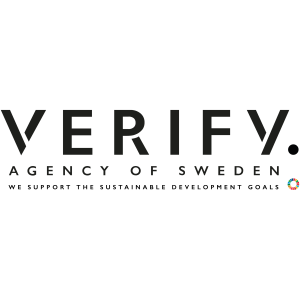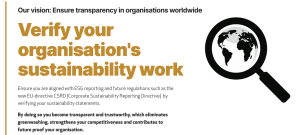 For far too long, markets, companies, and organizations have misled us with inaccurate information about the true costs of economic gains. This has led to a lack of transparency in the use of public goods, resulting in detrimental effects such as climate change, environmental degradation, and a decline in social resilience.
For far too long, markets, companies, and organizations have misled us with inaccurate information about the true costs of economic gains. This has led to a lack of transparency in the use of public goods, resulting in detrimental effects such as climate change, environmental degradation, and a decline in social resilience.
This is a consequence of the fact that many of today’s problems come from yesterday’s “solutions.” It is the first law of Peter Senge’s Fifth Discipline and is very much aligned with the Environmental Protection Encouragement Agency’s notion that cleaning up is just compensation for the outcome of flawed designs.
We no longer have time to clean up the consequences of flawed designs and yesterday’s “solutions.”
Today’s solutions require action based on responsibility, honesty, accountability, and commitment that goes beyond short-term economic gains. These require relationships based on a new currency: more transparency.
The European Union has taken the lead in structuring and integrating these new relationships into its socio-economic fabrics. The Corporate Sustainability Reporting Directive (CSRD), Corporate Sustainability Due Diligence Directive (CSDDD), Green Claims, and many other legislations that are already in place are just the first among many examples of governments seeking to align private sector contributions to national priorities.
Price is an expression of scarcity and does not reflect intrinsic value. However, markets should communicate correctly all kinds of scarcities, including scarcities of public goods. Unfortunately, they haven’t been doing so, and what is even worse, there has been a great deal of greenwashing. According to the data provided by the European Commission, 53% of green claims give vague, misleading, or unfounded information, and nearly half of these provide no supporting evidence.
There are many reasons why they haven’t. Greed and the wrong idea of increasing profit being the sole social responsibility of business are certainly among the reasons. But so is the fact that there were no effective instruments for companies and organizations to report on the true impact of their activities. Another important part of this malpractice is related to the fact that half of all green labels have not been independently verified and offer weak or non-existent evidence.
Environmental public goods, such as biosphere and ecosystem stability, clean air and water, healthy topsoil, or biodiversity, have been considered externalities for far too long. Together with social public goods, such as welfare and health, rural vitality, food security, and social capital, these have been excluded from the information on the gains from doing business. Rising temperatures, floods, droughts, pandemics, natural disasters, and other climate change-induced threats are the price we are paying for the flawed design and the lack of accountability.
The time has come to account for the true cost of doing business. However, it is not all to be blamed on industry and markets for wanting to see their profits grow. As consumers, we are responsible for choosing the products and services we want to use. We also get to choose what we want to make grow.
After all, there is no shame in pursuing success. The trouble lies in how it is pursued.
 Yes, companies can indeed do a lot better. But let’s not forget our responsibility as consumers. According to the study by Hertwich and Peters, personal choices drive 72% of greenhouse gas emissions globally. These are directly tied to household consumption, while the remaining 10% and 18%, respectively, are linked to government consumption and global investments. This only shows that, as consumers, we have the ability to make smarter and more sustainable choices, and in doing so, we can drive the change we want to see in the world.
Yes, companies can indeed do a lot better. But let’s not forget our responsibility as consumers. According to the study by Hertwich and Peters, personal choices drive 72% of greenhouse gas emissions globally. These are directly tied to household consumption, while the remaining 10% and 18%, respectively, are linked to government consumption and global investments. This only shows that, as consumers, we have the ability to make smarter and more sustainable choices, and in doing so, we can drive the change we want to see in the world.
The new Directive on Green Claims, which has recently been voted by the ample majority in the EU parliament, will make our choices easier. Companies must submit product marketing claims such as “biodegradable” or “less polluting” for verification before using them. This new directive, aimed to stop companies from making misleading claims about the environmental merits of their products and services, will set the standard for more transparency in doing business.
After all, more transparency gives companies committed to sustainability opportunities to step forward and get closer to consumers. This is where transparency proves its value, and our job as Impact Auditors is to verify and account for the true cost of doing business.
______
Sources:
Public goods for economic development, Compendium of Background Papers, United Nations Industrial Development Organization: UNIDO, https://www.unido.org/sites/default/files/2009-02/Public%20goods%20for%20economic%20development_sale_0.pdf
Green claims, European Commission, https://environment.ec.europa.eu/topics/circular-economy/green-claims_en
Carbon Footprint of Nations: A Global, Trade-Linked Analysis, (Hertwich & Peters, 2009, Env Sci Tech), https://pubs.acs.org/doi/10.1021/es803496a







